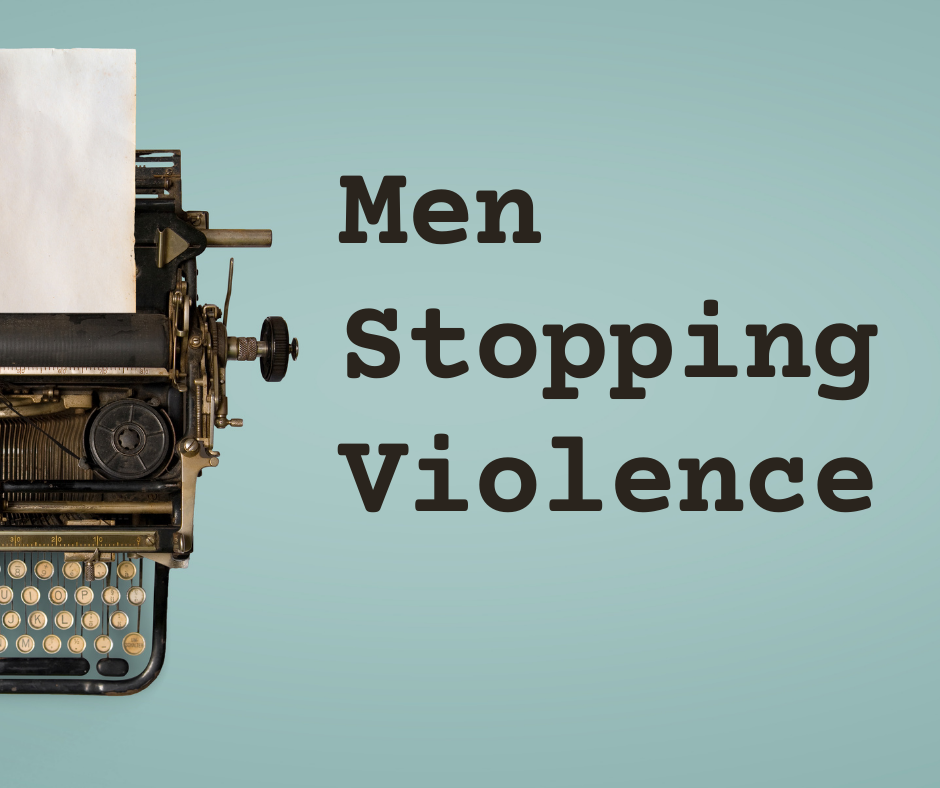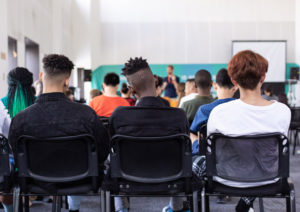
By Men Stopping Violence
Emerge Center Against Domestic Abuse’s leadership in centering the experiences of Black women during Domestic Violence Awareness Month inspires us at Men Stopping Violence.
Cecelia Jordan’s Justice Begins Where Violence Towards Black Women Ends – a response to Caroline Randall Williams’ My Body is a Confederate Monument – provides a terrific place to start.
For 38 years, Men Stopping Violence has worked directly with men in Atlanta, Georgia and nationally to end male violence against women. Our experience has taught us that there is no path forward without listening, truth-telling and accountability.
In our Batterer Intervention Program (BIP) we require that men name with exacting detail the controlling and abusive behaviors they have used and the effects of those behaviors on partners, children, and communities. We don’t do this to shame men. Rather, we ask men to take an unflinching look at themselves to learn new ways of being in the world and creating safer communities for all. We’ve learned that – for men – accountability and change ultimately lead to more fulfilling lives. As we say in class, you can’t change it until you name it.
We also prioritize listening in our classes. Men learn to hear women’s voices by reflecting on articles like bell hooks’ The Will to Change and videos like Aisha Simmons’ NO! The Rape Documentary. Men practice listening without responding as they give each other feedback. We don’t require that men agree with what is being said. Instead, men learn to listen to understand what the other person is saying and to demonstrate respect.
Without listening, how will we be able to fully understand the effects of our actions on others? How will we learn how to proceed in ways that prioritize safety, justice, and healing?
These same principles of listening, truth-telling and accountability apply on the community and societal level. They apply to ending systemic racism and anti-Blackness just as they do to ending domestic and sexual violence. The issues are intertwined.
In Justice Begins Where Violence Towards Black Women Ends, Ms. Jordan connects the dots between racism and domestic and sexual violence.
Ms. Jordan challenges us to identify and excavate the “relics of slavery and colonization” that infuse our thoughts, daily actions, relationships, families, and systems. These colonial beliefs – these “confederate monuments” that assert that some people have the right to control others and take their bodies, resources, and even lives at will – are at the root of violence towards women, white supremacy, and anti-Blackness.
Ms. Jordan’s analysis resonates with our 38 years of experience working with men. In our classrooms, we unlearn entitlement to obedience from women and children. And, in our classrooms, those of us who are white unlearn entitlement to the attention, labor, and subservience of Black people and people of color. Men and white people learn this entitlement from the community and social norms made invisible by institutions working in the interests of white males.
Ms. Jordan articulates the devastating, present-day effects of institutional sexism and racism on Black women. She connects slavery and the terror Black women experience in interpersonal relationships today, and she illustrates how anti-Blackness infuses our systems, including the criminal legal system, in ways that marginalize and endanger Black women.
These are hard truths for many of us. We don’t want to believe what Ms. Jordan is saying. In fact, we are trained and socialized to not listen to her and other Black women’s voices. But, in a society where white supremacy and anti-Blackness marginalize the voices of Black women, we need to listen. In listening, we look to learn a path forward.
As Ms. Jordan writes, “We will know what justice looks like when we know how to love Black people, and especially Black women…Imagine a world where Black women heal and create truly just systems of support and accountability. Imagine institutions made up of individuals who pledge to be co-conspirators in fights for Black freedom and justice, and commit to understanding the layered foundation of plantation politics. Imagine, for the first time in history, we are invited to complete Reconstruction.”
As in our BIP classes with men, reckoning with our country’s history of harm to Black women is the precursor to change. Listening, truth-telling and accountability are pre-requisites for justice and healing, first for those most harmed and then, ultimately, for all of us.
We can’t change it until we name it.

